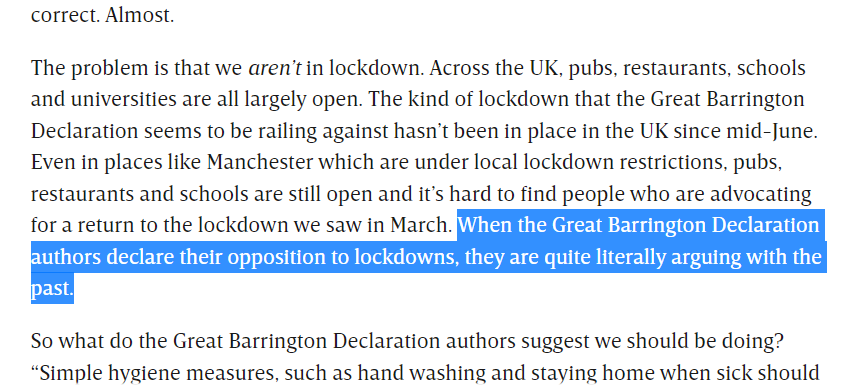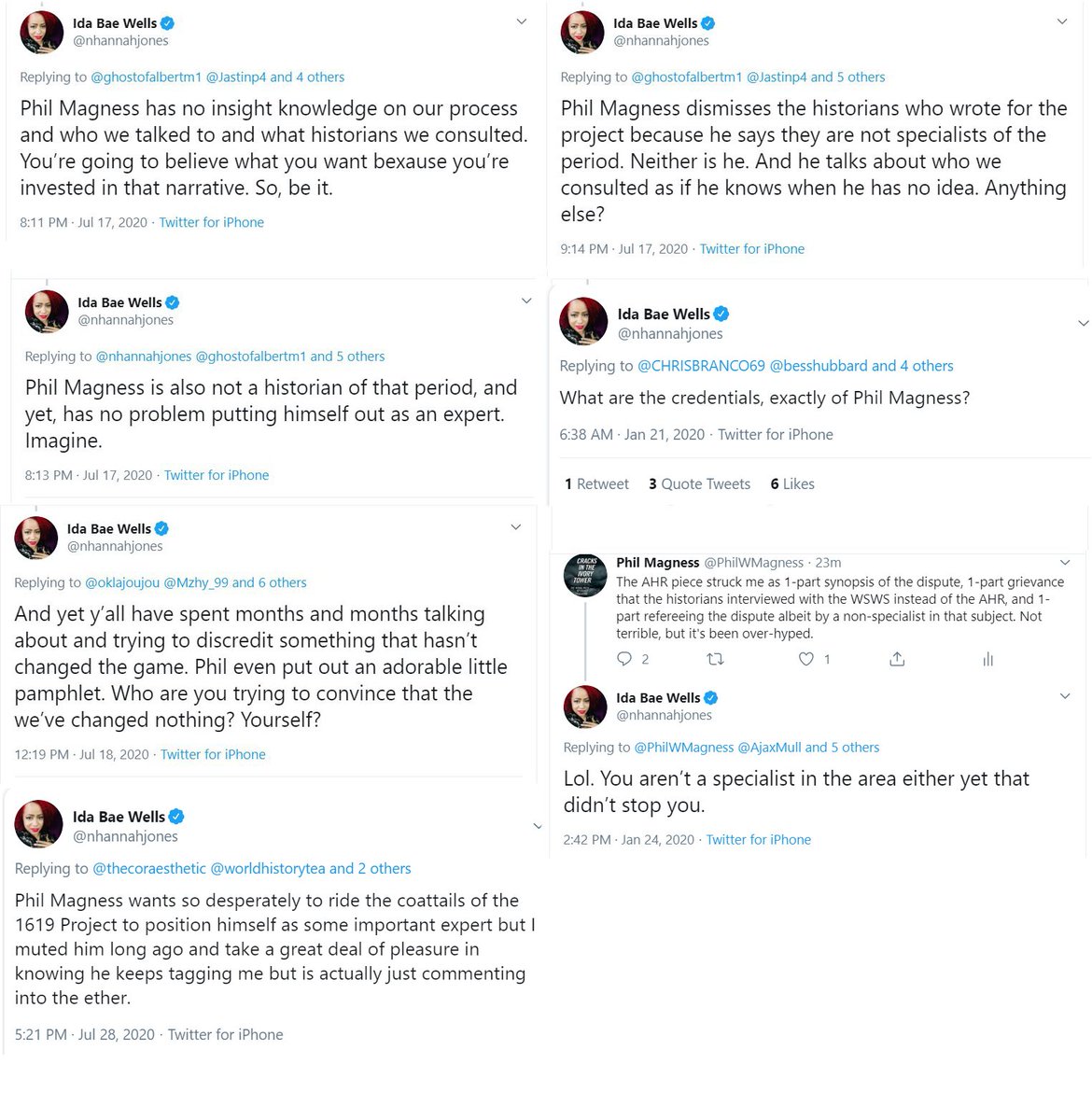
I've suggested before that the 1619 Project unwittingly tries to rehabilitate 'King Cotton' theory - the debunked economic strategy of the Confederacy.
But don't take my word for it. Here's Nikole Hannah-Jones espousing King Cotton theory outright in her @MasterClass lecture.
But don't take my word for it. Here's Nikole Hannah-Jones espousing King Cotton theory outright in her @MasterClass lecture.

On a related note, she clearly does not understand the difference between a final product and an intermediate step, e.g. shipping, hence this exercise in Ed Baptist accounting.
Intermediate steps of production are included in the final good. Cotton = ~5% of US GDP before 1860.
Intermediate steps of production are included in the final good. Cotton = ~5% of US GDP before 1860.

If you wanted to make the claim that NHJ did, you'd have to change the denominator's terms to bring them into comparable parity with the numerator - i.e. add up all intermediate steps of production in all economic sectors - not just cotton or slave-grown products.
Instead, what NHJ, Baptist et al do is add up intermediate steps in the numerator, hold the denominator as the size of the US economy at that time (aka GDP), and grossly exaggerate the economic importance of 'King Cotton' through a basic accounting error.
Another error in NHJ's Masterclass lecture - she claims that 'King Cotton' is the main driver of western expansion.
The problem - that only applies to the deep south states, which were settled well before the Civil War. By 1860, most of remaining west was unsuitable for cotton.
The problem - that only applies to the deep south states, which were settled well before the Civil War. By 1860, most of remaining west was unsuitable for cotton.
That's why the southern states were - unsuccessfully - pushing for the acquisition of territory in the Caribbean before the Civil War. The land out west was poorly suited for growing plantation crops.
• • •
Missing some Tweet in this thread? You can try to
force a refresh














